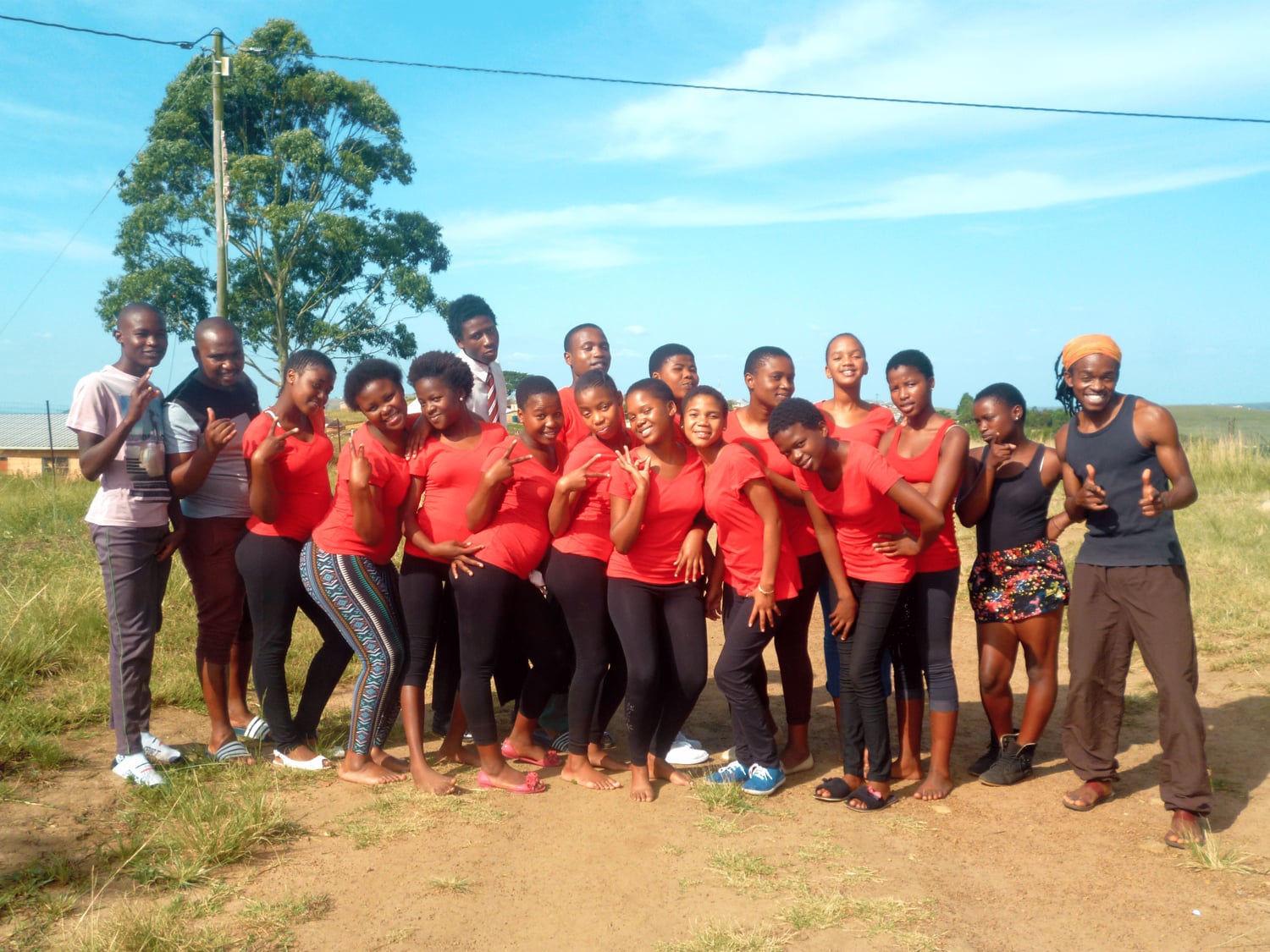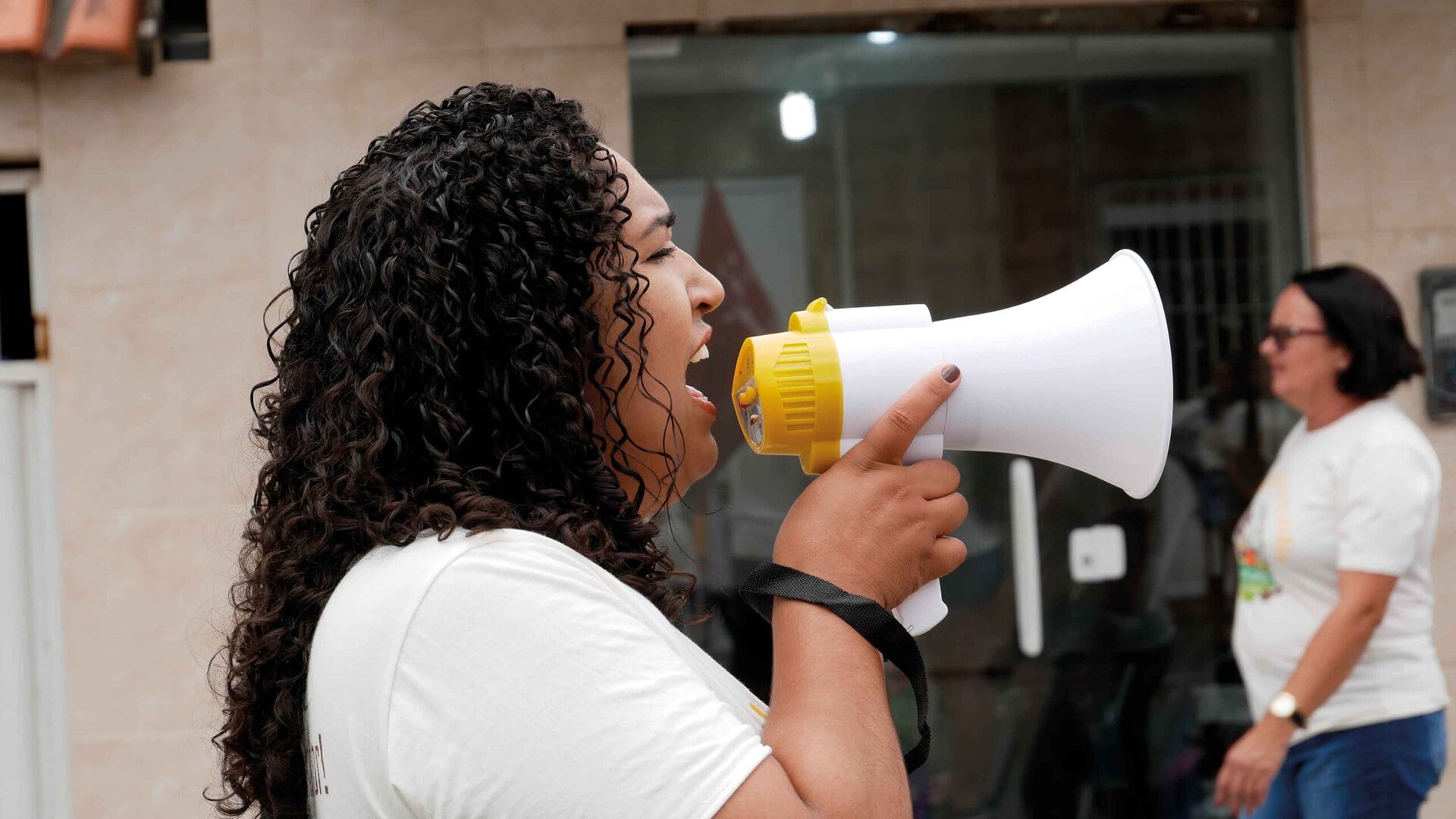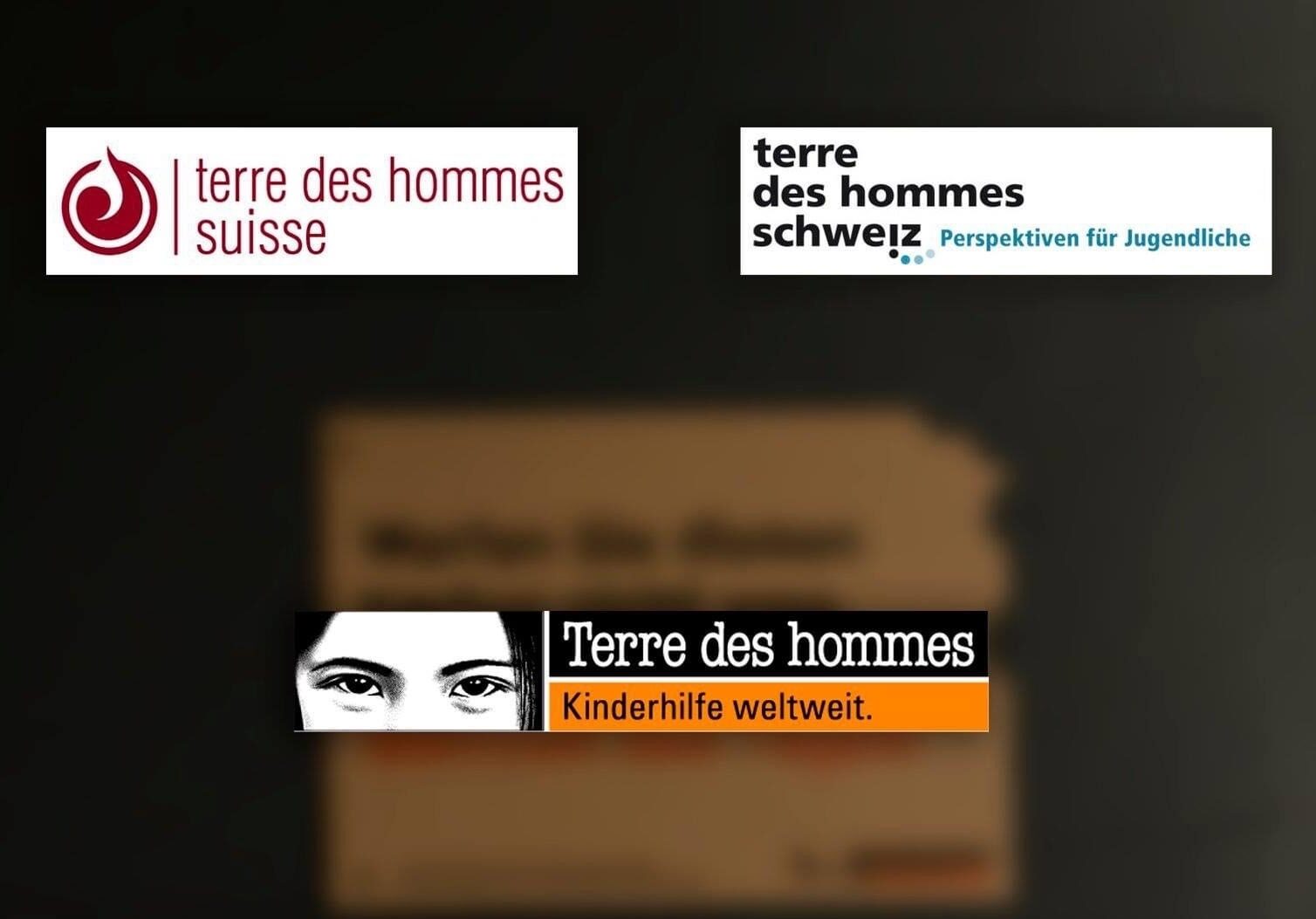What to do when the gap and conflicts between the younger and older generations seem insurmountable? What if young people see no future for themselves because of poverty, unemployment and violence? The South African organization Justice and Women (JAW) is confronted with these questions on a daily basis. They have launched a pilot project with young people that offers them basic training in dance, singing and acting – and promotes dialog between the generations.
Gabriela Wichser, Programme Coordinator South Africa
The small town of Melmoth is located in a remote rural region of KwaZulu-Natal (South Africa), where people’s lives are characterized by great poverty and violence. Even more than twenty years after the end of apartheid, the little fertile, flat and easily accessible land is still owned by a few sugar cane and timber producing families. The majority of the population lives on the steep and less fertile slopes of the rugged valleys. Economic opportunities are rare here, and over a third of the residents are unemployed. Young people generally have a very bad reputation here. They are all regarded as petty criminals.
Professional teaching
The new partner organization Justice and Women (JAW) is involved in this difficult environment. With the support of terre des hommesschweiz, it has been running a pilot project in the communities of Yanguye and Mjomelwane since this spring, providing young people aged 12 to 20 with basic training in dance, theater or singing. Professional dance teachers, theater teachers and singing teachers from the cities of Durban and Pietermaritzburg teach 75 learners from the high schools in these communities on two Saturdays a month. The young people are actively familiarized with project planning and implementation. This year, they will also organize two public events at their schools and implement their own small projects.
Commitment, discipline and perseverance
What sounds like a relaxed leisure activity for adolescents is a real challenge: young people should experience joie de vivre through dancing, singing and acting. However, the teachers also demand commitment, discipline and perseverance from the young people. They are expected to take part in competitions in Pietermaritzburg in a year’s time. The reason for this is not just ambition: taking part in the competition gives them the chance to interact with young people from other parts of South Africa with different cultural backgrounds. By being able to compete and keep up with privileged young people from elite schools, their self-confidence is boosted.
Questions are considered disrespectful
With this project, JAW is also making an important contribution to improving the relationship between the generations, which is fraught with conflict. Almost half of the children and young people here grow up without a father or mother. However, the generation of grandmothers who take care of them is often overwhelmed by the task of raising them. The grandmothers are characterized by a traditional value system in which, for example, death is not discussed. Asking questions is considered disrespectful. Young people, who are unable to mourn their parents in an appropriate way, feel misunderstood and often react rebelliously. During puberty, the tensions then intensify further.
Conflict-laden relationships
In South Africa, the older generation is unable to talk about physical changes and sexuality for cultural reasons. As a result, grandmothers resort to – in European terms – blatant means to monitor their granddaughters: they subject them to virginity tests and constantly monitor their contact with the outside world. These measures have only a minimal effect on preventing teenage pregnancies, as their high numbers prove. They do, however, increase the tensions that lead to conflicts between the generations.
Dialogue promotes understanding
With its dance, theater and singing project, JAW promotes dialogue between the generations by specifically involving parents and guardians. Grandmothers and parents meet regularly as a group with a JAW project worker. Together they discuss strategies for communicating more successfully with their children and grandchildren. In this way, JAW supports the change in values, strengthens understanding between the generations and opens up new perspectives for young people, which in the long term forms the basis for peaceful and constructive coexistence for everyone in the Melmoth region.



